Gainsborough Old Hall: The Most Complete Tudor Courtier House in England
Gainsborough Old Hall, in Lincolnshire, has been described by the renowned architectural historian, Anthony Emery, as the most complete courtier house of the period in England. It is a splendid monument to one man’s ambitions and accomplishments, across one of the most turbulent periods of English history.
Furthermore, it became the home of Katherine Parr as a young bride of seventeen and later, in 1541, would be visited by Henry VIII and Catherine Howard on their summer progress to York, a progress which was later shown to be steeped in royal scandal.

So, let us explore this incredible building’s history and touch on the notable personalities that crossed its threshold and walked its corridors!
Katherine Parr Arrives at Gainsborough Old Hall
In 1455, Thomas Burgh (sometimes written as ‘Borough’) inherited Gainsborough Hall. At the time, he was a young man of 25. Ambitious and capable, he had no intention of leading a quiet country life. Thomas set about demonstrating his allegiance to the Lancastrian King, Henry VI, and was rewarded, in turn, with grants of land. Yet, a little like Sir William Paulet nearly a century later, Thomas Burgh reincarnated himself as the reins of power shifted from Lancastrian to Yorkist Kings and back again; thus, he retained his status and wealth to pass on to his descendants.
His grandson, (another Thomas), Sir Thomas Burgh, would continue the family’s position at the heart of royal power. He was knighted on Flodden Field after victory over the Scots, becoming a trusted courtier at the court of Henry VIII and serving as a senior member of Anne Boleyn’s household as her Lord Chamberlain. He was one of the peers who held the new Queen’s train at her coronation and would be summoned to sit in judgment of her at her trial in 1536.
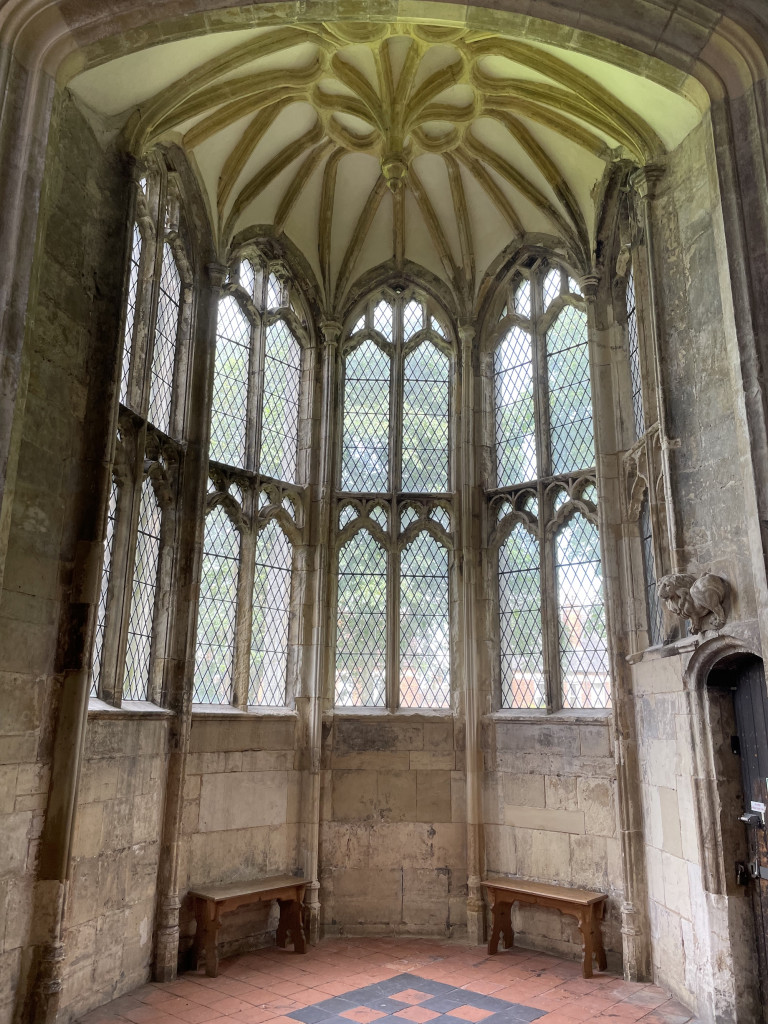
Image: copyright ‘The Tudor Travel Guide‘
Dendrochronology has dated the development of the house to a period of about 20 years, from the early 1460s to the late 1470s. During that period, successive ranges were built, commencing with the east range, which contained the family’s privy chambers. The current Great Hall followed (probably replacing an earlier structure), and finally, the guest lodgings were constructed in the west range. We will come back to the arrangement of rooms again shortly.
While Richard III was entertained at Gainsborough Hall by the first Thomas Burgh, (staying there overnight in October 1483), it is best known in the ‘Tudorsphere’ today for its association with two of Henry VIII’s wives.
The first of these was Katherine Parr, who, in the late spring of 1529, journeyed north from her childhood home at Rye House in Hertfordshire to begin her life as the wife of Edward Borough, eldest son of Sir Thomas Borough and his first wife, Agnes Tyrwhitt. Katherine was around 17 years old at the time of her first marriage.

Lincolnshire was one of the most isolated English shires, mainly due to geographical factors and inadequate transport network. The Great North Road, which entered the county at Stamford, was the only straightforward overland approach from the south. Most Southerners viewed the county as unwholesome and uncivilized. Henry VIII later famously described its inhabitants as, ‘one of the most brute and beastly of the whole realm’.
This remote county, while still governed directly from London, was a world away from the Tudor court’s lavish ceremonies and endless intrigues; nevertheless, it was now Katherine’s home. Unfortunately, her time at Gainsborough Hall cannot have been easy for Katherine. By all accounts, Katherine’s father-in-law was an overbearing and cantankerous man, who, according to Katherine’s biographer Susan James, ‘ruled his family with an iron hand’.
While there can be little doubt that Sir Thomas expected those under his roof to obey him, another of Katherine’s biographers’, Linda Porter, suggests that he was more flexible when it came to spiritual matters, ‘indeed he was himself interested in the new religious ideas and kept a reforming chaplain in his household’.

This passion and interest in the new religion must have affected Katherine’s views, and she may have engaged in religious discussions with the Burghs’ chaplain. Interestingly, though, according to Emery, no direct physical evidence of a chapel nor oratory, has ever been found at Gainsborough Old Hall, even though Burgh’s will lists vestments associated with this office.
Katherine left Gainsborough Hall in 1531. She moved out of the Burgh family home with her young husband, becoming the mistress of her own house in nearby Kirton-in -Lindsay, twelve miles or so from the main family home.
Katherine Howard At Gainsborough
Katherine Howard is also associated with Gainsborough Old Hall. She stayed there for three days, alongside her husband, Henry VIII, during the return leg of the court’s progress to York in August 1541. Retrospectively, this turned out to be an extremely eventful progress, with Katherine being arrested on charges of adultery soon after the royal couple arrived back in London. Time spent in country houses like Gainsborough would be amongst the teenager’s last taste of freedom.

But what about the layout and use of the hall? Where did the likes of Katherin Parr and Katherine Howard lodge when they were at Gainsborough?
The Layout of Gainsborough Old Hall
Incredibly, the core of the medieval lodgings remains much as they were in the sixteenth century, although some outer elements of the manor house appear to have been lost to time.
Built partly of brick and partly timber-framed, it consists of three ranges built around a courtyard, much as appeared in the sixteenth century. There is also evidence of a moat on the property’s north, west and east, although this has now been lost. Emery postulates that, initially, the house may have been accessed from the north, across the moat via a gatehouse, which led into a north-facing courtyard (now lost). In turn, the main body of the house would have been entered via a door leading into the lower end of a hall and via a screens passage, which has also since been lost.

Off the great hall, at its low end, were the usual three doorways leading to the kitchen, pantry and buttery; these survive in a remarkable state of repair. Also accessible from this low end was the west range, which initially contained three floors of lodgings, many of which featured a fireplace and garderobe. From the high end of the hall, the family could access their private apartments in the east range.
During the Tudor period, this latter, east range housed the large ceremonial chambers of the house and a three-storeyed polygonal tower, which also formed part of the family’s private apartments. An inventory made in 1496, after the death of Thomas Burgh, lists Lord Burgh’s house as having ‘a hall, a parlour, an inner parlour, a withdrawing room, a great chamber with another next to it, a chamber in the tower, and in the gallery’.
If you visit today, the main entrance to the house will take you into the east wing of the hall, and the ground floor serves as the hall’s restaurant and shop. Being in the east wing, you are now in the family’s private apartments. Art one time, these rooms would have been among some of the most sumptuous chambers in the house.

The arrangement of lodgings for Henry VIII and Katherine Howard during the 1541 progress are sadly not known. However, it has been postulated that on account of the king’s size and infirmity, by 1541, he was most likely lodged on the ground floor – the area now occupied by the shop. It is also thought this would make it likely that Katherine’s rooms were located on the first floor, just a few turns away, up the vice stair, which is still part of the Old Hall’s tower.
While some extraneous buildings associated with the hall have been lost, and its grounds and gardens significantly diminished, Gainsborough Old Hall is still a staggering survivor of time. Its history is associated with some of the giants of the Tudor age. It is well worth a visit.
Visiting Gainsborough Old Hall today…
If you are planning a trip to Gainsborough Old Hall, I recommend basing yourself in the nearby City of Lincoln. Here you will find the best of the accommodation and amenities. The old part of the city is glorious, with a castle, cathedral and the ruins of the Bishop’s Palace, where Henry VIII and Katherine Howard also stayed during the same 1541 progress. From Lincoln a visit to Gainsborough Old Hall can be easily accomplished in half a day.
If you wish to visit Gainsborough Old Hall, check out the website here.


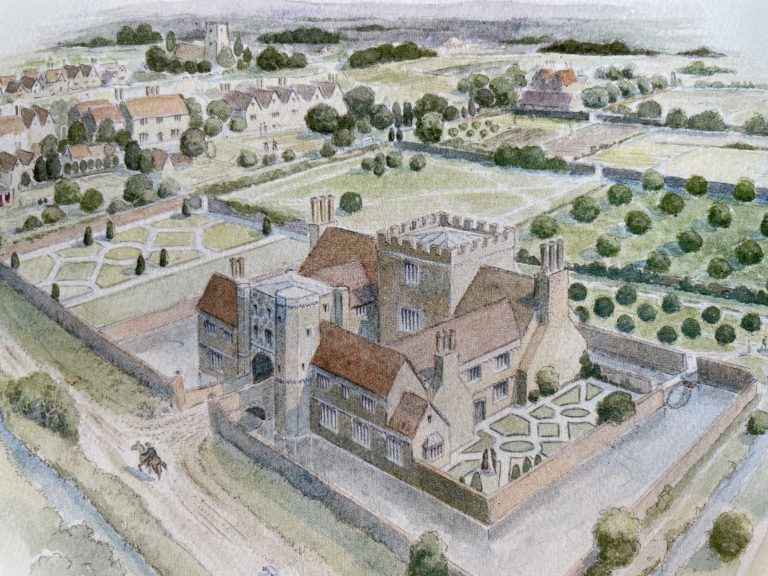
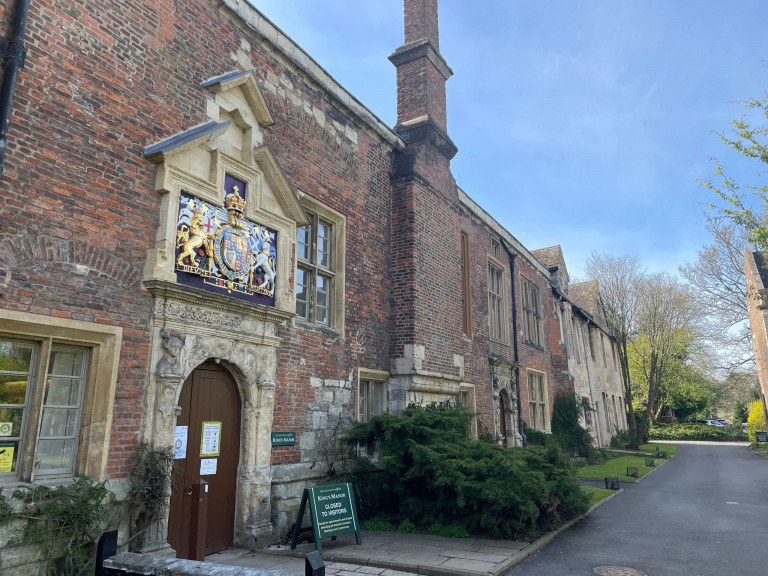
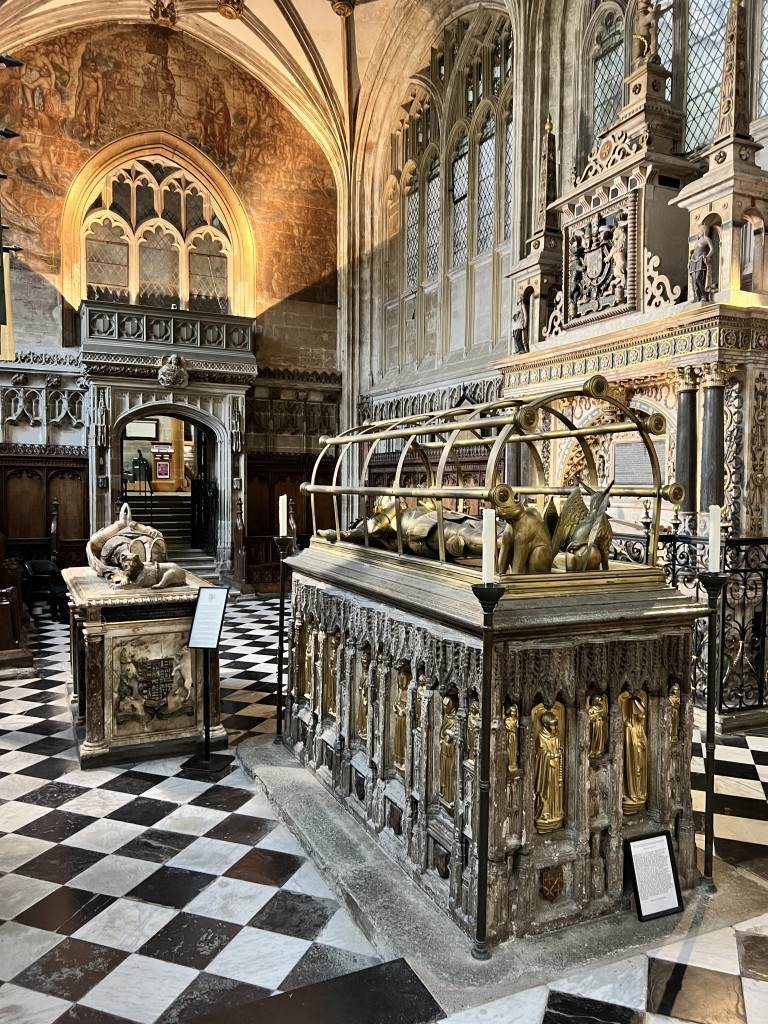
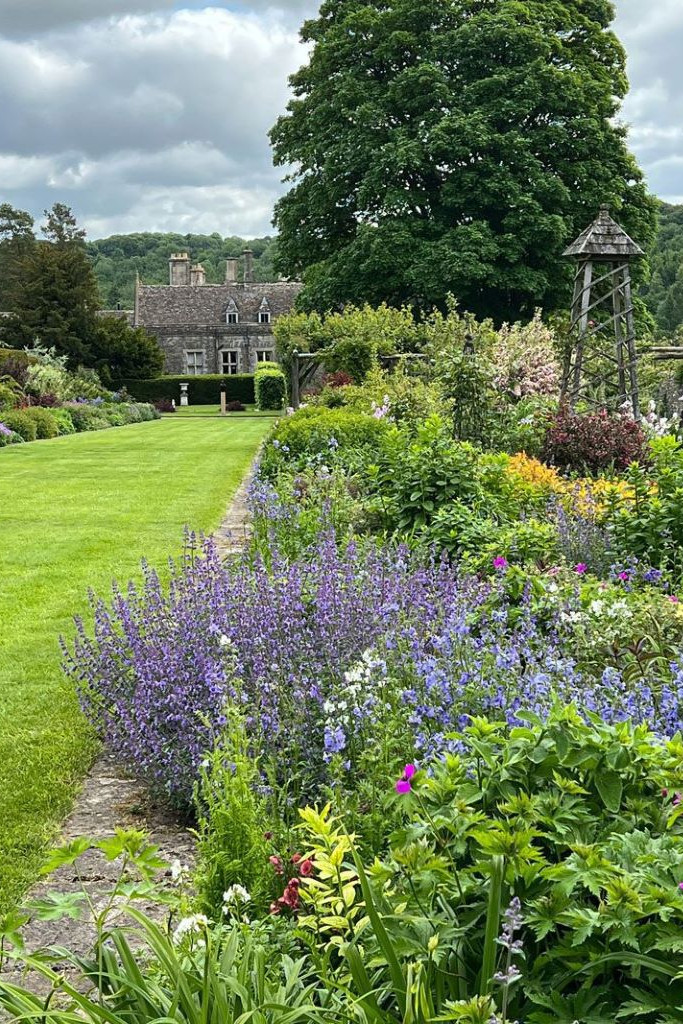
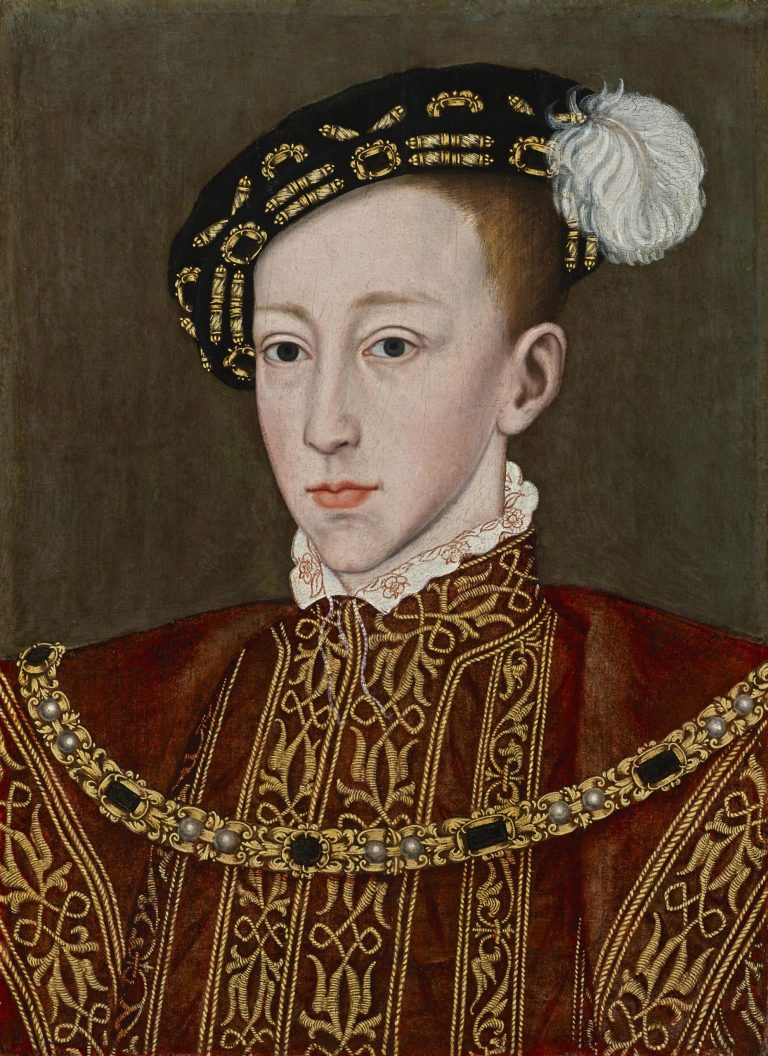
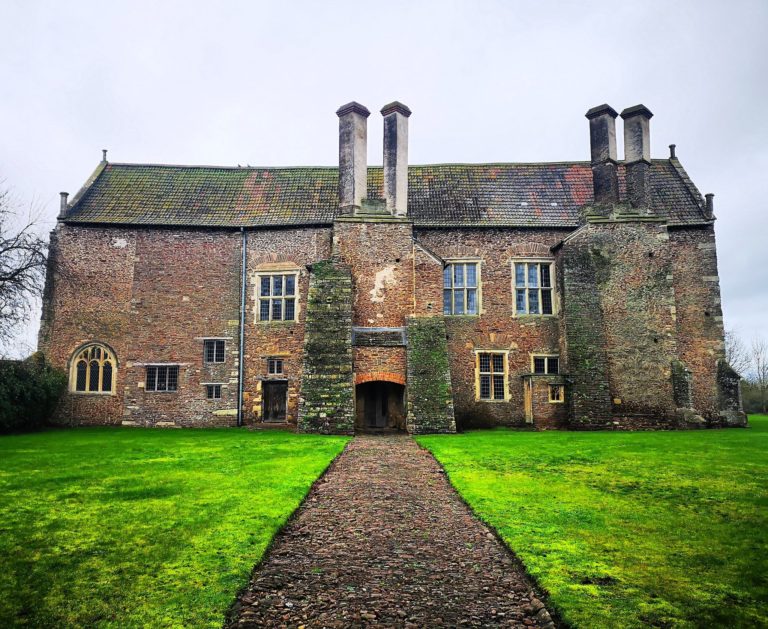
Talk about time traveling! What a perfect read to accompany the book I just finished on Katherine Parr! The kitchens look so authentic and the white and black timber frame reminds me a bit of Little Moreton Hall. Thanks for another awesome blog Sarah!
I was pleased to find and read this blog a second time as we are planning to visit in March. Thank you Sarah! ??